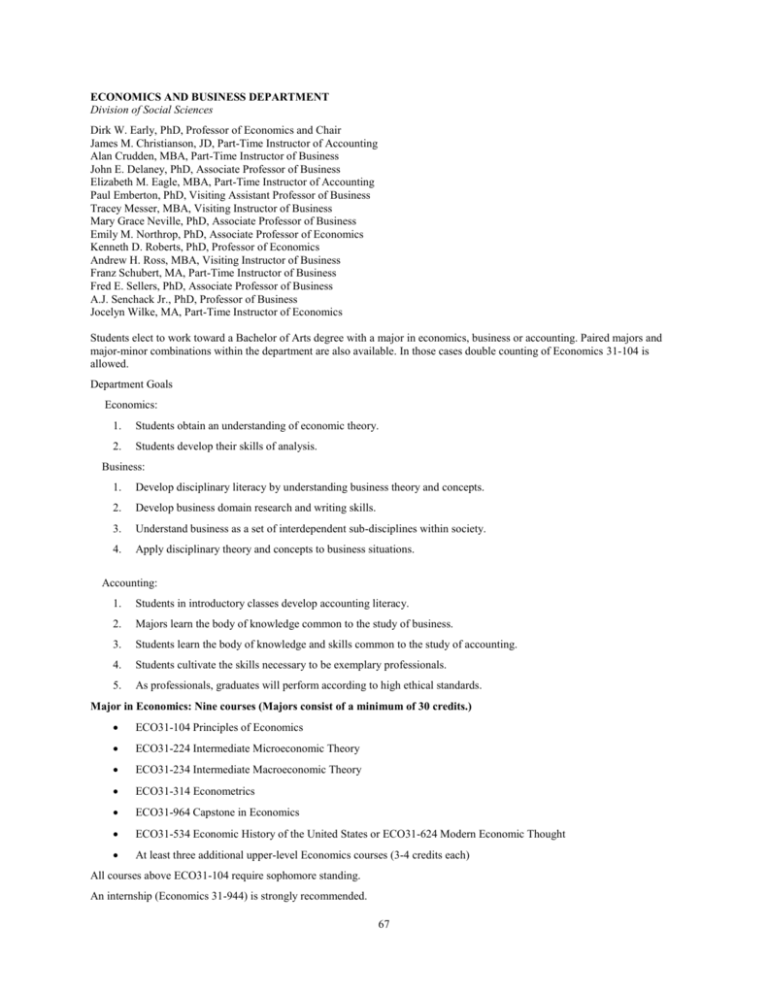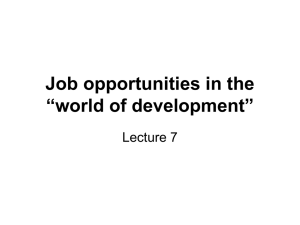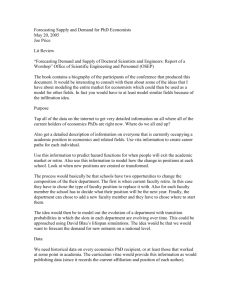Southwestern University Course Catalog 2012-2013
advertisement

ECONOMICS AND BUSINESS DEPARTMENT Division of Social Sciences Dirk W. Early, PhD, Professor of Economics and Chair James M. Christianson, JD, Part-Time Instructor of Accounting Alan Crudden, MBA, Part-Time Instructor of Business John E. Delaney, PhD, Associate Professor of Business Elizabeth M. Eagle, MBA, Part-Time Instructor of Accounting Paul Emberton, PhD, Visiting Assistant Professor of Business Tracey Messer, MBA, Visiting Instructor of Business Mary Grace Neville, PhD, Associate Professor of Business Emily M. Northrop, PhD, Associate Professor of Economics Kenneth D. Roberts, PhD, Professor of Economics Andrew H. Ross, MBA, Visiting Instructor of Business Franz Schubert, MA, Part-Time Instructor of Business Fred E. Sellers, PhD, Associate Professor of Business A.J. Senchack Jr., PhD, Professor of Business Jocelyn Wilke, MA, Part-Time Instructor of Economics Students elect to work toward a Bachelor of Arts degree with a major in economics, business or accounting. Paired majors and major-minor combinations within the department are also available. In those cases double counting of Economics 31-104 is allowed. Department Goals Economics: 1. Students obtain an understanding of economic theory. 2. Students develop their skills of analysis. Business: 1. Develop disciplinary literacy by understanding business theory and concepts. 2. Develop business domain research and writing skills. 3. Understand business as a set of interdependent sub-disciplines within society. 4. Apply disciplinary theory and concepts to business situations. Accounting: 1. Students in introductory classes develop accounting literacy. 2. Majors learn the body of knowledge common to the study of business. 3. Students learn the body of knowledge and skills common to the study of accounting. 4. Students cultivate the skills necessary to be exemplary professionals. 5. As professionals, graduates will perform according to high ethical standards. Major in Economics: Nine courses (Majors consist of a minimum of 30 credits.) ECO31-104 Principles of Economics ECO31-224 Intermediate Microeconomic Theory ECO31-234 Intermediate Macroeconomic Theory ECO31-314 Econometrics ECO31-964 Capstone in Economics ECO31-534 Economic History of the United States or ECO31-624 Modern Economic Thought At least three additional upper-level Economics courses (3-4 credits each) All courses above ECO31-104 require sophomore standing. An internship (Economics 31-944) is strongly recommended. 67







